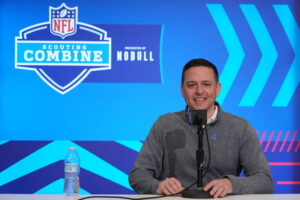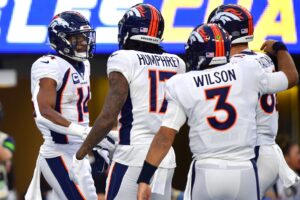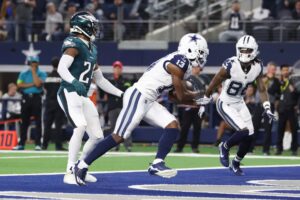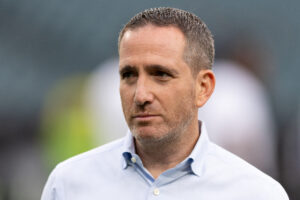The National Basketball Association, Major League Baseball, and the National Hockey League all share one common trait: they have a development league. They have a farm system that allows prospects to further develop their game without scrutiny.
Players, scouts, front office, general managers, officials, or public relations workers can learn how to do their job in a smaller, less scrutinized environment before making the jump to the big leagues. It’s something the NFL should consider creating as a means towards enhancing its product.
The Case for an NFL Developmental League
Players
A farm league allows teams to take chances on players who may or not yet be ready to carry a franchise and develop him away from the spotlight.
Every year, experts describe some prospects with open-ended, imaginary qualities such as “raw talent.” It fascinates fans and attracts over-confident young coaches into thinking if that player can be coached to properly play his position coupled with his athleticism, the sky is the limit.
During this past draft, one of those prospects was quarterback Sam Darnold from the University of Southern California. Darnold has all the physical traits to be a franchise player, but his in-game footage shows he still needs to practice his mechanics, footwork, accuracy, and decision-making.
One-on-one coaching situations will improve his mechanics, footwork, and accuracy to a degree, but there is nothing like live reps. No amount of coaching can simulate overcoming a terrible first half or a two-minute drill with a playoff berth on the line. These situations are what separate legends from the rest.
It would be more beneficial for him to play in a development league for one or two years before making his debut. From an individual standpoint, he gets time to master his craft without the frenzy of being a quarterback in the National Football League. Also, as the team continues to struggle, they draft theoretically better prospects.
Spending time in a farm league also gives time for players to develop physically, mentally, and emotionally. Some people may come into the NFL ready to roll (Andrew Luck, Julio Jones, Von Miller); however, some players need more time to marinate and nurture their skills but in time become amazing (Kurt Warner, James Harrison). These “late bloomers” needed more time to hone their skills, and the results proved it.
Executives
A development league would give the National Football League and the teams opportunities to test new ideas and prospects.
Behind the scenes jobs such as public relations, marketing, schedule maker, scouting, or general manager to name a few would start their careers as interns in the development league. The development league would give teams a live test look at how potential future employees handle their day-to-day activities.
Imagine that an NFL-development team hires you as a scout. After a few years of solid work, you move up the ranks to director of scouting, and then general manager of the development league. By the time, you get the call from the NFL team as an assistant general manager, you have a decade of experience in scouting, contract negotiation, fitting a 53-man roster under a salary cap, trading, and cutting players. Therefore you are as ready as you can be when you get the call to be general manager of the NFL club. For example, John Elway began his executive career in the Arena Football League, where he was a general manager for seven years.
Referees
It would be beneficial for referees training. Any young up-and-coming referee would begin his or her career in the development league and based upon his or her success would move up to the NFL. That way the NFL does not have to send in a first-time referee in an NFL game.
It would be hugely beneficial for the league, as it seems that every year there are a few games decided on a blunder by a referee. There was the “Fail Mary” game between the Green Bay Packers and Seattle Seahawks, or the “Jesse James’ no TD-controversy” in the Pittsburgh Steelers–New England Patriots game from last season at Heinz Field. We can go on and on with the Packers-Dallas Cowboys playoff game and the Dez Bryant “catch or no catch” game in 2014.
The point is that referees have made costly mistakes in the past. Nobody is perfect but spending some time in a development league would give the referees more training so that, much like the players and executives, when they reach the NFL, they would be much better.
Finally, if the NFL wanted to implement new rules, they could test these out in the development league and have live game footage of how these new rules would affect games without affecting the primary product.
For example, the most perplexing rule is the “catch rule.” The NFL could test out its new catch rules in the development league, get feedback from players and referees, see if it works and if so, then implement the changes in the NFL game.
It could also be for more significant changes like say quarters of 12 minutes instead of 15. Changing the overtime rule to another quarter, or giving fewer timeouts.
Conclusion
The development league would benefit everyone. It would give young players who are not yet ready to play at the next level, recent grads looking to get into the sports world, and referees could test out their skills before moving up to the big league. It would also benefit the NFL with any new rule implementation.






